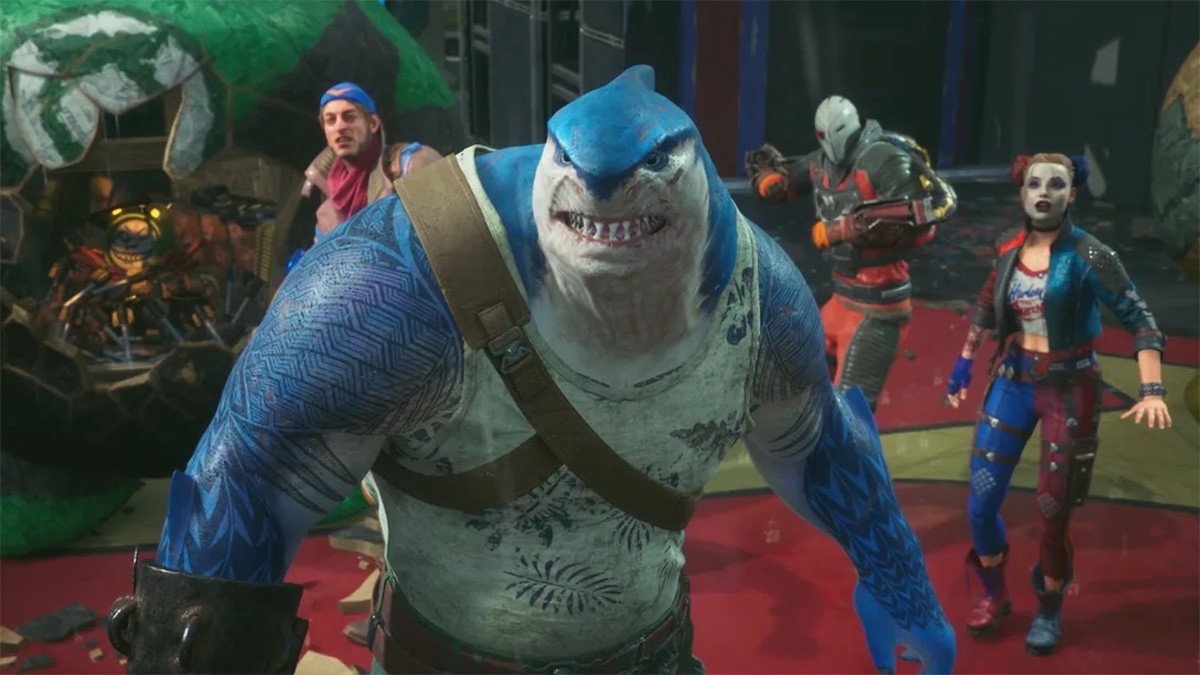Live-service dissonance and 'toxic positivity' thwarted Suicide Squad
Insiders tell Bloomberg how Rocksteady went from single-player hits to a live-service dud.

An extensive report from Bloomberg has pulled back the curtain on the troubled development of Suicide Squad: Kill the Justice League, the high-profile live-service dud from Batman Arkham developer Rocksteady and publisher Warner Bros. Games.
It was already clear the project had rocky road to launch thanks to multiple delays and the fact Warner Bros. revealed it has taken a $200 million loss on the multiplayer shooter.
Now, the full extent of the chaos has been laid bare. Almost two dozen sources told Bloomberg the project was hamstrung by a fluctuating vision, a rigid culture of perfectionism, and a live-service genre switch that clashed with the sensibilities of Rocksteady—which had previously cut its cloth making single-player experiences.
It details how Rocksteady leaders began to parrot the live-service enthusiasm of publisher Warner Bros., expanding the studio to 250 people (from 160) in a bid to deliver an online multiplayer hit that would validate their belief in the sometimes lucrative, sometimes catastrophic business model.
Sources claim that expansion turned Rocksteady into an unwieldy studio—albeit one still smaller than those making rival titles. Worse still, some new recruits swiftly left the developer after realizing they'd be put to work on a live-service project. Rocksteady reportedly refused to share details during the hiring process, resulting in retention issues when the expectations of new hires failed to manifest.
A sprawling studio without clear direction
The vision for the game also remained in a constant state of flux, with Rocksteady leaders eventually choosing to focus on gunplay over melee combat as first pitched. It was a shift that left some devs wondering why they had chosen to place characters such as Captain Boomerang and King Shark—who generally don't wield firearms—at the heart of the experience.
Other leadership decisions left devs puzzled. Studio co-founder Sefton Hill reportedly wanted moddable vehicles that could be used to navigate the open-world sprawl. This was after the team had already implemented unique traversal mechanics for each playable character. It was eventually scrapped after months of development and prototyping.
Another issue arose from the need to make bosses and battles endlessly replayable to scratch the live-service itch. Rocksteady only had single player experience to draw on, and ultimately struggled to ensure those encounters could go the distance.
Those who worked on the project said concerns were raised internally, but would be met with "toxic positivity." Management reportedly adopted an 'it'll be all right on the night' mentality and told staff Suicide Squad's disparate parts would come together on the final stretch. Warner Bros. execs apparently took a similar stance, lauding various incarnations of the title and claiming it had the potential to become a billion-dollar franchise.
The rest, as they say, is history. But for the full story be sure to check out Bloomberg's full report.
Read more about:
Top StoriesAbout the Author(s)
You May Also Like







.jpeg?width=700&auto=webp&quality=80&disable=upscale)








